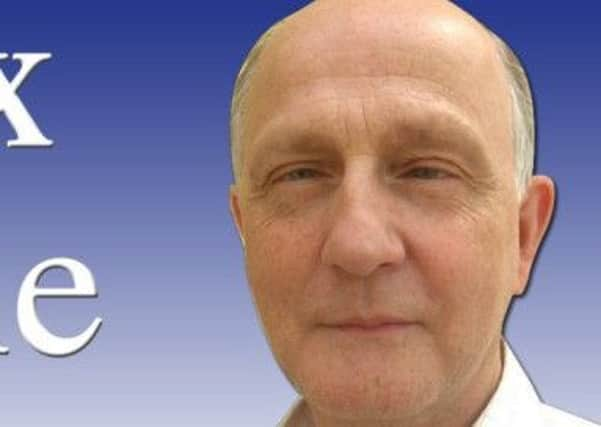Loyalism needs a voice, but it mustn't be those linked to paramilitary past


I’ve noted before that the past is always in front of us in Northern Ireland: and that’s because almost everything here falls into the ‘unfinished business’ category. Which, in turn, means that it’s extraordinarily difficult to agree on the present (hence the serial political/institutional crises), let alone the future. So some of you will understand my concern that the Red Hand Commando has applied to be removed from the list of proscribed terrorist organisations; seeking to keep its title and carry on in some other non terrorist-linked capacity.
In Tuesday’s News Letter, Sam McBride quoted a ‘veteran RHC member’: “If we were legal we could go round schools and tell them, don’t do what I did — people lost their homes, lost their families, lost their children, could never get a job again. Tell them the hard truth, the reality of life.” Fair enough. But, to be blunt, there’s probably no reason why they couldn’t have been doing that since the Combined Loyalist Military Command ceasefire statement in October 1994. 23 years is a very, very long time to get your act together and decide that you’re not actually a terrorist group anymore.
Advertisement
Hide AdAdvertisement
Hide AdThat said, it would be churlish not to recognize the fact that they have applied for de-proscription; or to acknowledge the statement from the Loyalist Communities Council (LCC)—established a couple of years ago by Jonathan Powell and David Campbell, among others—that, ‘One of the key reasons behind the formation of the LCC was to assist the three main loyalist groupings in their transformation away from paramilitarism and to work constructively for the benefit of loyalist and unionist communities.’
My preference would be for the RHC to disappear altogether. There was never any need for them. When they were formed in 1972 (by John McKeague and William ‘Plum’ Smith) Northern Ireland had the RUC, the Ulster Defence Regiment, British troops, the intelligence services and Special Branch, all of whom were involved in the campaign against the IRA. The RHC, like all of the loyalist paramilitary groups, was a terrorist organization first and foremost. By their own admission they also had members involved in other sorts of criminality, too; which would have included protection rackets within and around their ‘own community’.
A few days ago Jim Wilson told the Nolan Show that “membership numbers were in the small hundreds, who are engaged in community work”. I can understand why many of those members look at the IRA (which a paramilitary assessment panel concluded in late summer 2015 still existed and had influence over Sinn Fein in the Assembly) and wonder why so much fuss is made about the RHC. And I agree with Claire Mitchell’s recent assessment (she used to lecture in sociology at QUB and did some work with the RHC and UVF about transition) of loyalism: ‘Still grasping for a political voice, still resentful of their exclusion from big house unionism, still frustrated that they can’t seem to access the kind of social and political legitimacy that they perceive republicans to have accessed.’
But while I agree that loyalism needs a voice, and I have written about it many times, all of the political/electoral evidence seems to suggest that the loyalist communities (because there is more than one of them) do not want people linked to the RHC, UVF, UDA et al, to be that voice. The Ulster Democratic Party (which was part of the 1997/98 negotiations) won no seats. The PUP is reduced to just four of the 573 elected offices in NI. Which leaves those organisations with a problem: if they are unable to become the voice of what they describe as ‘our people, our communities’, then what do they need to do to ensure genuine, credible representation for them?
Advertisement
Hide AdAdvertisement
Hide AdLeave the stage altogether would be my suggestion. Allow a new generation, with their own political vehicles and voices to step in and take up the challenges. Loyalism has been left behind, and not just since 1998, either, and it seems to me that they deserve to be recognized; more than that, they deserve to have the enormous socio/economic/educational deprivations that bedevil their communities approached with something more substantial than soundbites and yet another research document.
For me, the LCC’s desire for these loyalist paramilitary groups to “work constructively for the benefit of loyalist and unionist communities” would be best fulfilled by the decision of the RHC and others to pull down the shutters and remain in the past. I call it the Madeline approach. Issue a short, unambiguous statement: ‘That’s all there is. There isn’t any more.’ Honestly, guys, it really is that simple.